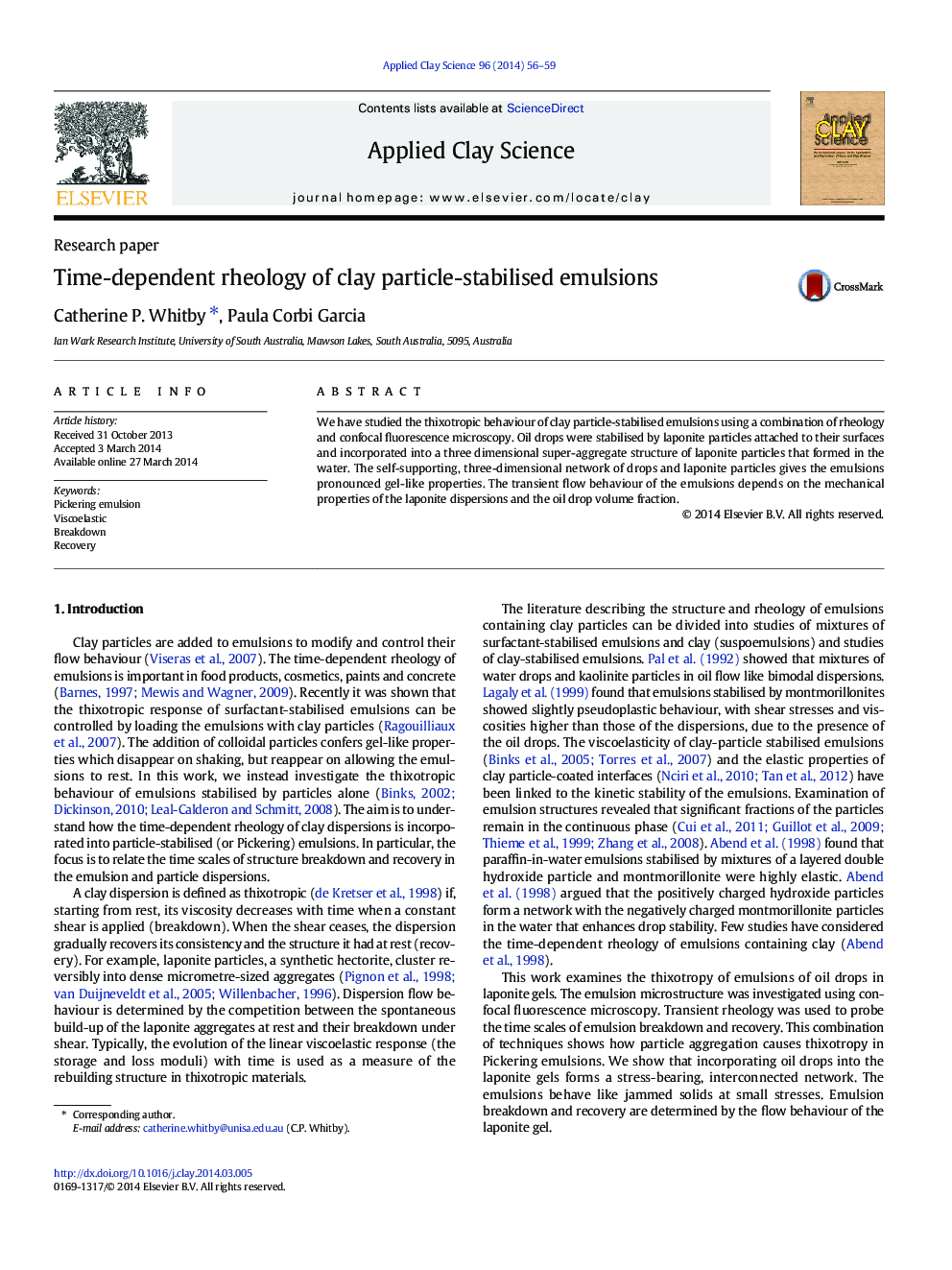| Article ID | Journal | Published Year | Pages | File Type |
|---|---|---|---|---|
| 1694776 | Applied Clay Science | 2014 | 4 Pages |
•We studied the thixotropic behaviour of clay particle-stabilised emulsions.•The emulsions consisted of a three-dimensional network of drops and clay particles.•Transient flow depended on clay dispersion properties and the drop volume fraction.
We have studied the thixotropic behaviour of clay particle-stabilised emulsions using a combination of rheology and confocal fluorescence microscopy. Oil drops were stabilised by laponite particles attached to their surfaces and incorporated into a three dimensional super-aggregate structure of laponite particles that formed in the water. The self-supporting, three-dimensional network of drops and laponite particles gives the emulsions pronounced gel-like properties. The transient flow behaviour of the emulsions depends on the mechanical properties of the laponite dispersions and the oil drop volume fraction.
Graphical abstractFigure optionsDownload full-size imageDownload as PowerPoint slide
